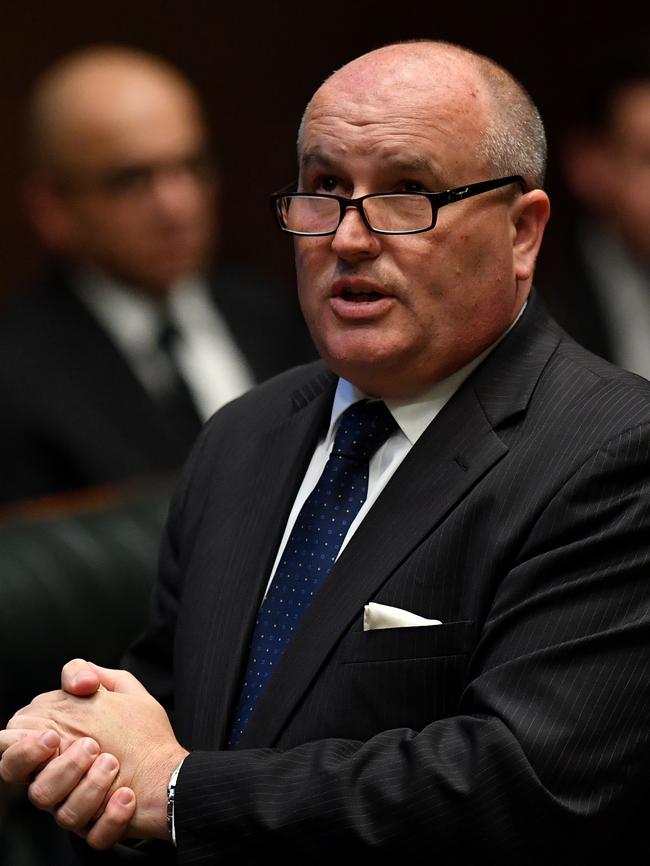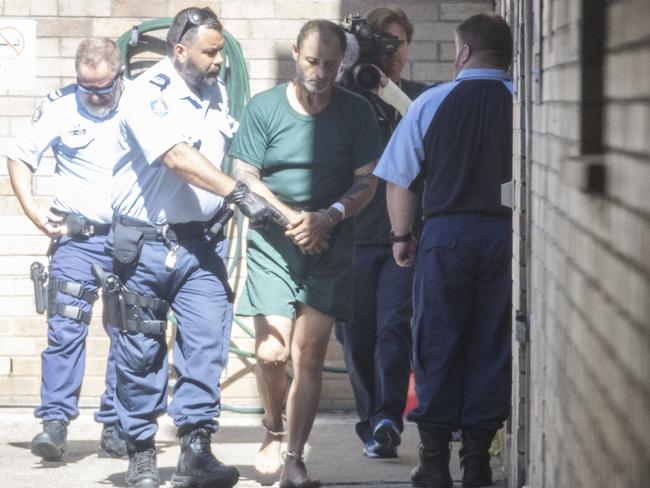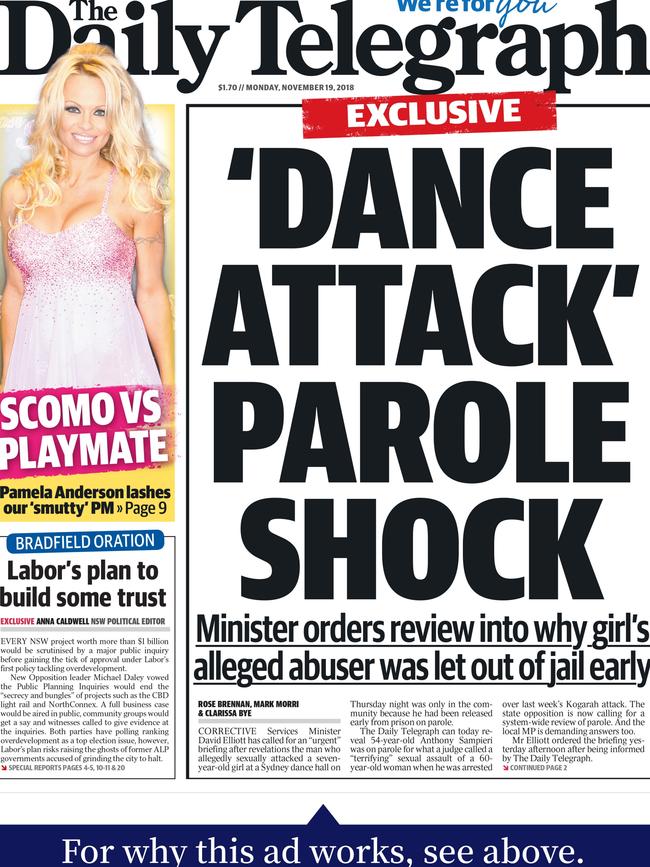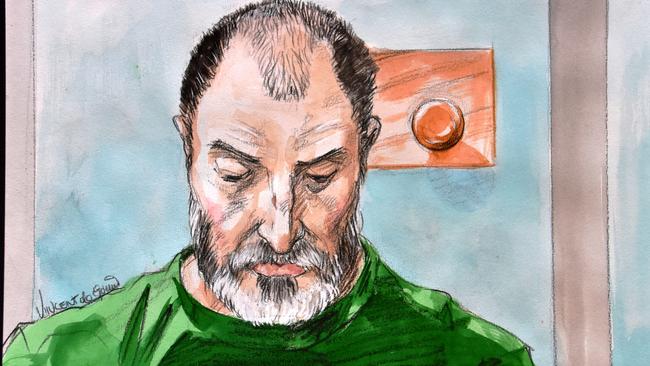State Parole Authority boss ordered to end secrecy surrounding release of criminals
The head of the parole board has finally been read the Riot Act and told to end the secrecy surrounding the release of criminals back into the community. Former Justice James Wood has not published a single decision explaining the release of any offender since he took charge of the parol board in 2013.
- Man bailed on sex charges ‘sexually assaulted girl, 13’
- NSW parole laws to be reviewed
- Ray Hadley calls for NSW parole board changes
The head of the parole board has finally been read the Riot Act and told to end the secrecy surrounding the release of criminals back into the community.
Former Justice James Wood has not published a single decision explaining the release of any offender since he took charge of the parol board in 2013.
Corrections Minister David Elliott called the parole chief into his office on Tuesday following two weeks of outrage after it was revealed convicted rapist Anthony Sampieri was on parole when he allegedly sexually assaulted a seven- year-old girl in Kogarah.
“I met with State Parole Authority Chairman, Justice James Wood, to discuss how parole decisions can be made as open and transparent as possible,” Mr Elliott said.
“Both Justice Wood and I agree that this is what the community expects and deserves.”
The Daily Telegraph understands Justice Wood was told to appoint a media officer and publish court lists showing who is applying for parole, where and when, and the reasons for decisions.

At present the minister is left to explain decisions by the State Parole Authority and has even gone to the Supreme Court to try to get them overturned.
Currently the parole board does not publish court lists or explain its decisions. Last year 8308 prisoners were released on parole — 1249 of those on the say so of the board.
The board refused parole for 210 inmates — a sharp drop from 297 in 2015. But exactly who they are and why parole was refused is not known.
There are currently 6800 offenders on parole but while the courts that jail the offenders are open with the names published online, there is no similar system when they are released.
The spotlight has fallen on the parole board after it was revealed Sampieri, 54, was released on parole last year, five years into a seven-year sentence for raping a 60-year-old woman after making hundreds of obscene phone calls to strangers while on the drug ice.
RELATED NEWS
Sampieri tried on dresses before alleged attack
Cops find ‘rape kit’ inside Sampieri home
Sampieri should have been charged before attack
Victim accuses justice system of protecting Sampieri

The Daily Telegraph revealed that his parole officers did not revoke his parole in September when he told them he was using ice again.
Nor did police charge him last month when he was reported for allegedly making another obscene call.
Sampieri did not apply for bail when he appeared before Waverley Local Court on Monday charged with choking the schoolgirl into submission, sexually assaulting her and making a child abuse film.

Victims’ advocate Howard Brown is a longtime critic of the secrecy under which the parole board operates.
“For people to have confidence in the system, they should understand the basis upon which decisions are made,” Mr Brown said.
Their public hearings are open but only the victims are told who is applying for parole.
There is currently no way for anyone else to find out.
Mr Brown, who is often asked to appear at the authority on behalf of victims of crime, said that adding to the secrecy was the lack of District Court decisions published online.
He said the justice authorities paid “lip service” to victims’ rights.
“When the victims are asked to make submissions to the parole authority, they usually don’t have the sentencing remarks of the judge to base them on,” Mr Brown said.
He said he had been told he had to get the permission of the sentencing judge to obtain their judgment and wait for three months for a transcript.
In its latest controversial case, the under scrutiny SPA yesterday adjourned its hearing about releasing killer Douglas James Wade on parole so it can consider fitting him with an electronic monitoring bracelet.


It is an embarrassing backflip because Wade, who raped and murdered his girlfriend’s 22-month-old daughter in 1989, is already on work release and was considered a “moderate to low risk” which does not qualify for electronic monitoring.
The SPA has been told that Wade, 55, whose life sentence was reduced to 36 years under truth in sentencing laws, intends to live near his victim’s family outside Tumut.
“They decided to stand the matter over today,” Mr Brown, who was representing the family, said.
A State Parole Authority spokeswoman said: “Review hearings of the parole authority are open to the public and available for anyone to attend.”

But she added there were no laws requiring the parole authority’s decision to be published.
In another breakthrough for open justice, Attorney-General Mark Speakman said he would be discussing better access to judgments with the Chief Judge of the District Court Justice Derek Price.
“While the operation of courts is a matter for relevant heads of jurisdiction, I will discuss the issue of how access to judgments can be improved for victims, including whether more judgments can be published online,” he said.


